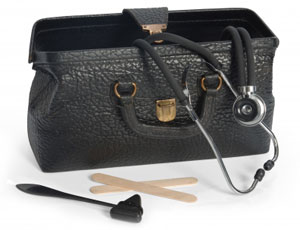HOME VISITS
 Home visits are generally reserved for patients who are terminally ill, genuinely bedbound or who do not leave the house for any reason, and for patients who are severely ill and cannot be mobilised.
Home visits are generally reserved for patients who are terminally ill, genuinely bedbound or who do not leave the house for any reason, and for patients who are severely ill and cannot be mobilised.
Please request visits before 11am whenever possible as this allows time for the doctor to contact you about the request and decide on the most appropriate management. Late requests often lead to disruption of the appointment system and excessive waiting times for others. Visits usually take place 12-2pm.
A doctor will call you back on most occasions to assess your problem. This is to enable the doctor to prioritise visits. We will visit only if the patient’s clinical condition prevents them from travelling to the surgery and they are deemed to have a medical condition that necessitates an urgent medical opinion which cannot be otherwise managed.
GPs are not obliged to visit a patient if they have assessed the patient's clinical need on the telephone and felt that an alternative method of healthcare would be more appropriate. This may include offering an urgent appointment at the surgery, contacting the district nurse or advising to attend urgent care or accident and emergency.
Age is not a criterion for a home visit, this applies to both older and younger people.
Home visits will not be undertaken for social, financial or transport reasons.
GPs are better able to assess patients in the surgery where they have access to specialist equipment and better examination facilities and is the preferred site for consultations.
GPs having to visit inappropriate house call patients are delayed from visiting those patients who are in genuine need of a visit and therefore this poses an unacceptable clinical risk. We can usually see 4-6 patients at the practice in the time it takes to do a home visit.
Please dial 999 in case of a genuine life threatening emergency. For life-threatening emergencies, requesting a visit from a GP can delay life-saving treatment.
Examples of such situations are:
- Suspected Heart attack
- Severe shortness of breath
- Severe bleeding
- Suspected stroke
- Loss of consciousness
GPs will NOT usually visit for the following conditions and circumstances and it is expected that the patient will attend the surgery if needing to be seen.
Common symptoms of childhood: fevers, cold, cough, earache, headache, diarrhoea /vomiting and most cases of abdominal pain. These patients are usually well enough to travel by car. It is not harmful to take a child with a fever outside. These children may not be fit to travel by bus or walk, but car transport is usually available from friends, relatives or taxi firms.
Adults with common problems, such as a cough, sore throat, influenza, back pain and abdominal pain, are also readily transportable by car to the surgery premises. Common problems in the elderly, such as poor mobility, joint pain and general malaise.
Please remember
The practice is not responsible for arranging transport to the surgery.
We will not visit for convenience.
Wherever possible patients requiring a consultation with a GP will be asked to attend the surgery.
The consultation is better performed at the practice surgery where the GP undertaking the consultation has access to the full clinical record and access to support services such as Practice Nurses and the correct facilities for undertaking examinations.
Home visits are not an efficient use of pressurised GP time and can even delay treatment when an alternative method of healthcare may be more appropriate.